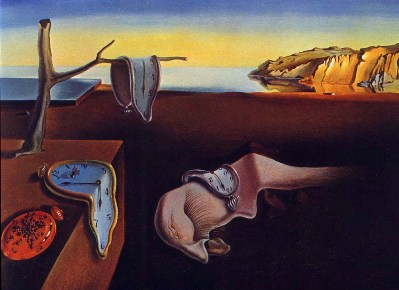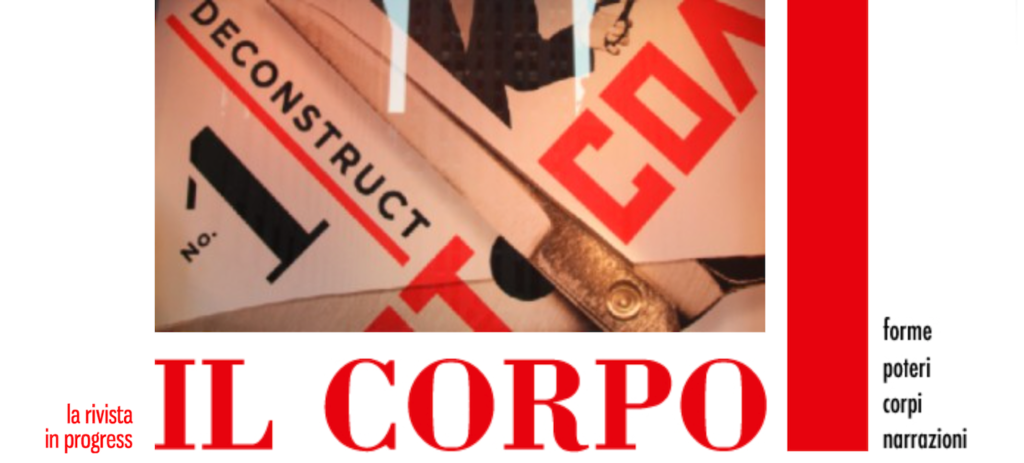21 Nov Anthropology of facebook: time, origins and uncanny memories
A ritual to undo time
“I was found and contacted by many of my ex-schoolmates, but apart from exchanging news about our everyday lives, nothing much came of it. But then, a few weeks later, a dear old friend of mine with whom, for several reasons, I had had a falling out eight years ago, found the courage through Facebook to apologize for what she had done and re-connect with me. I would say that’s quite an achievement for a “simple” internet site. My friend and I have started seeing each other again, have cleared up our misunderstandings, and now confide in one another just like we used to eight years ago. Thanks Facebook!”
Thousands of similar stories could be told by Facebook users. This reminds me of the behaviour of an obsessive-compulsive patient described in a book many years ago by Elvio Fachinelli called The frozen arrow and three attempts to undo time.
A 45-year old small businessman has an appointment with his lawyer. The appointment is for 6:30, but the businessman asks if it can be moved an hour so that he can go to his psychoanalyst. The lawyer agrees, at which point the businessman discovers he has yet another problem. The documents he has to take to his lawyer are under a newspaper supplement that he can’t read because it comes out on Sundays and in his personal world, “working on Sundays is a sin”. It is also a “mortal sin” for him to touch the supplement. He could wait for his wife to come home and ask her to do it, but she comes home after 7:30 and he doesn’t feel like changing the time of the appointment again. He eventually comes up with the following solution:
“He decides that he has no choice but to get the documents out from under the supplement himself and go to his lawyer’s. Afterwards, he will perform an “undo”. This is what an “undo” consists of: repeating, but in reverse, all the actions which he has done up till the moment in which he pulled the documents out from under the weekly supplement. When he comes out of the lawyer’s office, he will go down the stairs backwards, drive in reverse until he gets home, and climb up the stairs to his apartment backwards. When he finally gets to the shelf from which he took the documents, he will put the papers back exactly where they were in the first place with a hand movement which is the exact reverse of the one he made to pull them out. At that point, the sinful act will have been “undone”. (E. Fachinelli 1979:10).

Salvator Dalì, The persistence of memory
By honing in on the logic of inversion, the temporal technique of the obsessive patient aims to “undo time”, to “render not having happened” an event which is critical for him. Fachinelli compares the procedure described to the cultural processes to undo time, such as the reiteration of origin myths or ancestor cults.
Facebook users have it easier than the obsessive patient, but obtain the same results: undoing time, turning back time, recovering objects, people, projects, and the past. The dominant modern linear concept of time is cruel, it deprives us of hope: every act is irreversible, there is no turning back. Facebook gives us back the possibility of cyclical time and an eternal way back: the past is not gone forever, it can come back, it can repeat itself. The promise of Facebook is as powerful as that of the prophets, if not more so: it is possible to go back to the origin, to be reborn, undoing history and its scars. After eight years, you can regain a friend who betrayed you, resolve the trauma of the conflict just as if it had never happened and feel eight years younger. Or say you’re a forty-something and newly separated with a young child? Facebook is your salvation; “F. is looking for you, summer 1990….. In a flash, even if for just a few seconds, 19 years are swept away”, your imagination takes you to a faraway beach that can come back and save the present.
The allure of Facebook is hard to beat: it can undo time, allow the past to reincarnate itself into the present, promise regeneration with the powerful myths of origin, of youth, of a time when everything was possible. Sorceresses offer an uncertain future….. Facebook the certainty of going back….Prophesies don’t always come true, while the past has already happened, we just need to find it again, just undo time with a daily click on the keyboard….
Memory betrayed
I switch on the computer. A Facebook message: “you’ve been tagged in L’s photo”.
Here’s a fragment of the past both unexpected and unlooked for. I would have liked to have been an archeologist, I like fragments, just not my own.
Private message from G.: “Have you seen the photo L. posted on Facebook? There’s me, you and her twenty years ago on the beach. L. looks just the same, but the two of us look just awful, really fat”.
Actually, I don’t think I look that bad and definitely not that fat, then some people start recognizing me and the comments are surprising. I find out I’ve had fans I never even knew about.
The bottom line is that a fragment of my memory has been detached from my biography and has taken on a life of its own, and I’m not a public figure who others feel authorized to investigate, write and speak about.

- René Magritte, Memory
And this is not Proust’s Madeleine. It’s a piece of memory that’s been expropriated and offered to others, a piece of my corporal biography that no longer belongs to me and that I no longer have power over. The reaction of estrangement that one often feels when looking at old photographs, with a mixed feeling of “not recognizing oneself” and nostalgia for the past, is no longer an experience that we can decide. It can be imposed on us by others. We can’t control what we want to remember or forget. Pieces of ourselves may be wandering around in the Internet and we may not even know about it.
One wonders if it’s possible to go into oblivion in the age of Facebook and Google. Are individuals still able to construct and control the course of their own memories and autobiographies? We are not talking about offensive or obvious acts of aggression, of behaviours which are illicit and can be reacted to with conflict, regulations, or accusations. These are acts which are apparently normal and “genuinely friendly”. These are pieces of memories that someone else wants to show and that, unwittingly, involve us. We should start thinking about asking to sign a waiver every time we take a picture on the beach, in the mountains, or at a dinner, if we don’t want to end up as a clickable icon, open to comments from tens or hundreds of people, both known and unknown to us. Second self seemed to have been created in the pursuit of pseudonyms and avatars. A unique opportunity to overcome the limits of social and personal circumstances to re-invent other lives, other identities, other bodies, and other loves. We had finally discovered the creative potential of opacity. With Facebook, it seems we have returned to the social control of the village and witchcraft like the theft of “I”. A new voodoo lurks among us and the culprits are our best friends rather than our enemies.
Virtual time, the time of dreams, fantasies, myths and lies is making way for stolen memories, the betrayal of the self through the Russian roulette of etherodirect transparency. How long will it last? Maybe not long given we are already seeing the birth of new movements and social networks that promise secrecy and invisibility.

